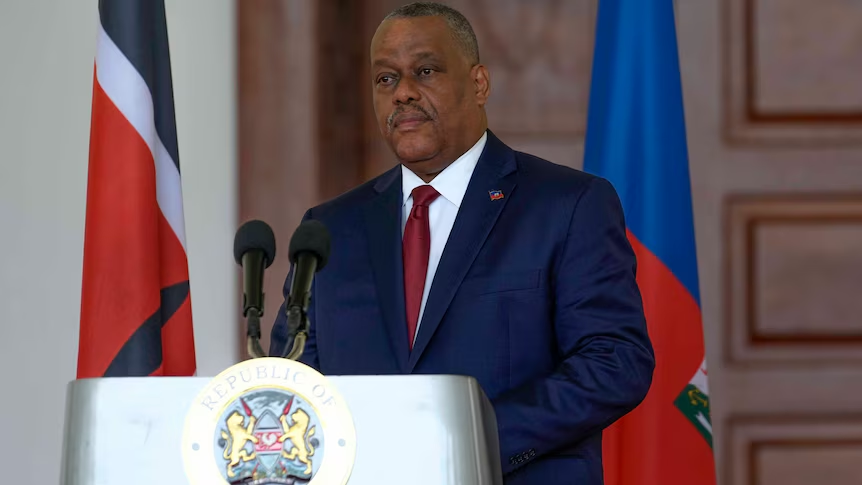Haitian Prime Minister Garry Conille has been dismissed by the country’s ruling transitional council, just six months after taking office, in a move that threatens ongoing international efforts to restore security in the country, including the Kenyan-led Multinational Security Support (MSS) mission.
An executive order signed by eight of the nine council members appointed businessman and former Senate candidate Alix Didier Fils-Aime as Conille’s replacement.
Conille, a former United Nations official, had been brought in to navigate Haiti through its ongoing gang-led security crisis and help facilitate the country’s first presidential elections since 2016.
He described his ousting as illegal, expressing concerns about the constitutional implications and the future stability of Haiti.
In a letter following his dismissal, Conille noted that the decision was made outside of any legal or constitutional framework, raising serious questions about its legitimacy.
Haiti currently has neither a president nor a functioning parliament, and according to the constitution, only the parliament can remove a sitting prime minister.
Conille’s removal is expected to have broader ramifications, especially at the United Nations, where a draft resolution is being prepared for the Security Council to vote on the potential deployment of a U.N.
peacekeeping mission to replace the multinational security force in Haiti. U.S. officials, including Secretary of State Antony Blinken, have supported Conille and the multinational mission, which includes Kenyan, Jamaican, Belizean, and Bahamian police forces.
The mission has made progress in securing areas under gang control, but ongoing political instability and internal divisions in Haiti complicate the situation.
The transitional council’s decision follows weeks of tension between Conille and Leslie Voltaire, president of the council, who had demanded a cabinet reshuffle that Conille resisted.
The council was formed in April after the forced resignation of Ariel Henry, Conille’s predecessor, who had been ousted by gangs that took control of parts of the capital, Port-au-Prince.
Haiti has been plagued by rampant violence, with over 3,600 people killed since January, and more than 500,000 displaced.
Gangs, including powerful leader Jimmy Chérizier, have capitalized on the power vacuum left by the assassination of President Jovenel Moïse in July 2021.
With elections yet to be held, Haiti remains in a state of lawlessness, and international efforts to stabilize the country, including the deployment of Kenyan police officers, are vital to addressing the crisis.
The situation in Haiti remains dire, with nearly two million people facing food insecurity and ongoing violence contributing to one of the world’s most severe humanitarian crises.
Nyachae’s Son Sued Over Management of Family Business
Email your news TIPS to Editor@NairobiNews.co.ke
